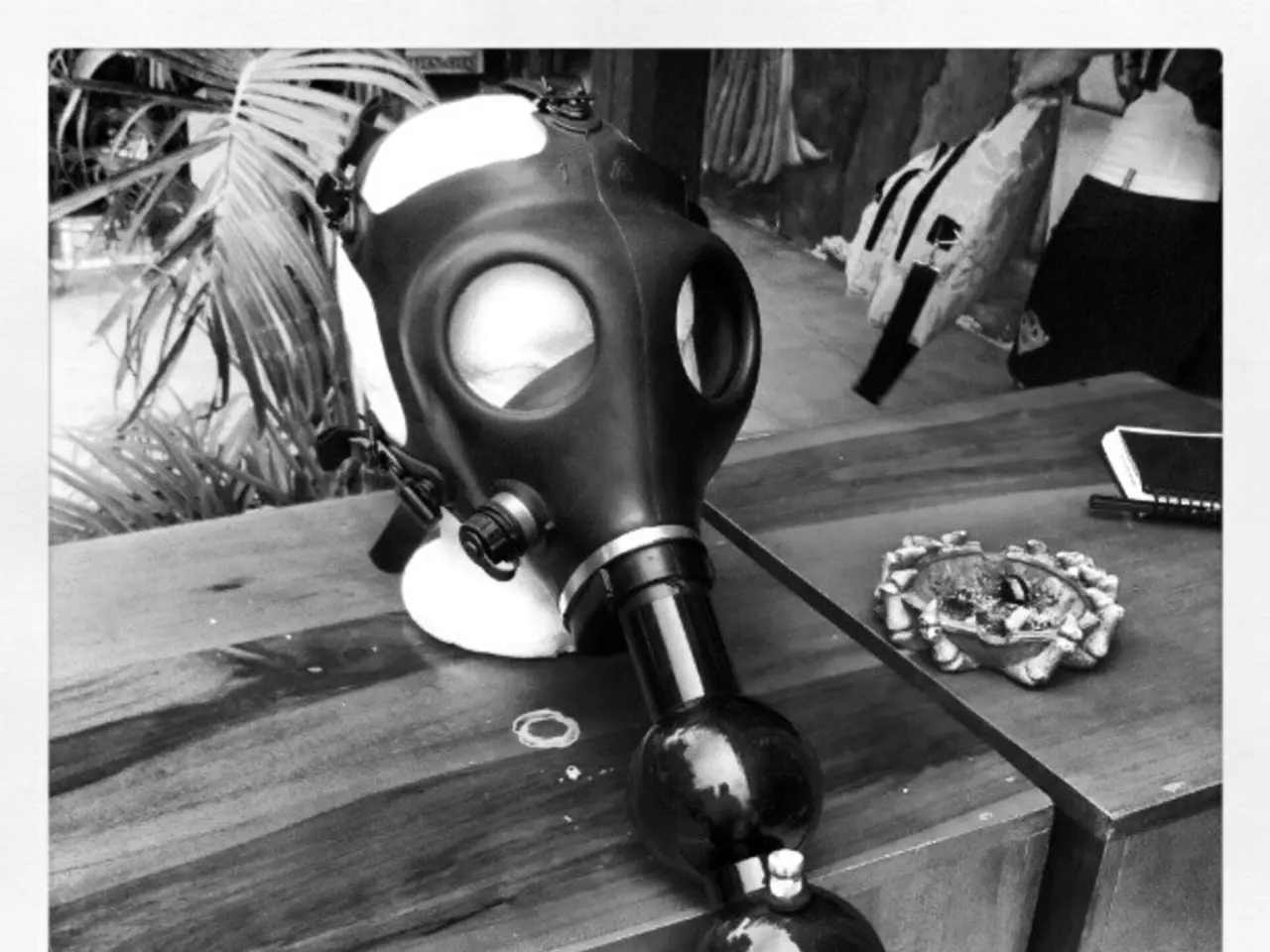Simple Instructions for Home Interior Painting:
DIY interior painting can be a fantastic way to breathe new life into your home. This guide offers a straightforward approach to ensure your painting project is a success, resulting in rooms that look professionally done.
Ready to Spruce Up Your Space? Let's Get Started!
Planning Ahead
Choosing the right color scheme is essential, as it sets the foundation for your painting project. Consider the mood you want to create for each room and how colors can influence this. Test swatches in various lighting conditions to see how they change throughout the day. Don't be afraid to go bold with accent walls, but aim for a cohesive overall look. The right shades can entirely transform your space, making it feel larger, cozier, or more vibrant according to your vision [1].
Looking for Color Inspiration? Try AI!
tools like Paintit.ai - an AI-powered interior design tool - allow you to upload a picture of your space and see how different color schemes, including split-complementary combinations, would look in your home. No design expertise or software is required, just quick, realistic previews to aid your design decisions.
Get the Right Amount of Paint
Properly estimating paint quantities is crucial to both prevent mid-project shortages and waste. Measure your wall areas, and check the coverage information on your chosen paint, typically expressed in square feet per gallon. Account for the need for multiple coats and primers, and purchase a little extra for touch-ups for a seamless painting process.
Preparation is Key
Clearing and Protecting
Prepare your room by clearing furniture, moving it to the center, and covering remaining items and floors with drop cloths or plastic sheeting. Mask off light fixtures, electrical outlets, and hardware as well. Protecting your belongings ensures they remain untouched by paint splatters and drips.
Cleaning and Repairing
Before painting, clean walls thoroughly to remove dust, dirt, and grease. Use a mild detergent and let them dry fully. Inspect for cracks, holes, or imperfections and fix them using spackle or joint compound [2]. Finally, sand these areas smooth for a level surface for optimal paint adhesion.
Get Equipped and Stay Safe
Gather Your Tools
Prepare all necessary tools and materials, such as brushes, rollers, paint trays, painter's tape, and ladders. Quality tools can greatly improve the ease of application and the quality of the finish.
Safety First!
Ensure good ventilation and wear protective gear like masks and gloves when painting in enclosed spaces.
Master the Techniques
Priming the Walls
Primer is crucial, especially for covering dark colors or painting on new drywall. It enhances adhesion and helps to hide imperfections. Use a primer suitable for your wall condition and paint type for the best results.
Painting Edges
Use a brush to paint the edges, corners, and trim before using a roller on the main wall surfaces.
Rolling the Walls
Roll the walls with a roller, working in a W-pattern for even coverage and avoiding overloading the roller with paint.
Multiple Coats
Depending on the paint and color, you may need multiple coats. Allow each coat to dry completely before applying the next.
Finishing Up & Touch-ups
Clean Up and Tidy Up
After the final coat, remove the painter's tape and perform any necessary touch-ups. Clean your tools thoroughly for future use.
Reassembling the Room
Once the paint is totally dry, move your furniture back into place and enjoy your newly transformed space.
Time to Call in the Professionals?
While DIY interior painting can be an exciting project, sometimes employing professionals like House Painters Washington DC or those in Prescott may be more practical. They offer expertise, efficiency, and professional-grade equipment, ensuring a high-quality, polished finish that's often worth the investment.
Conclusion
Painting your home's interior has the potential to significantly improve your living environment. Follow these steps and techniques to achieve a professional-looking finish that will revitalize your home. Whether you decide to tackle the project yourself or hire professionals, you'll be left with a fresh, updated space that reflects your personal style [4].
- [1] Top Tips for Choosing the Perfect Color Scheme for Your Space: https://home.dicksclearing.com/blog/7-tips-for-choosing-the-perfect-color-scheme-for-your-space/
- [2] Choosing the Best Primer for Interior Walls: https://www.bp-mag.com/choosing-the-best-primer-for-interior-walls-42873
- [3] AI Interior Design Tools: The Future of Interior Design: https://housely.com/ai-interior-design-tools-future-interior-design/
- [4] Guide to Painting Your Home's Interior: https://www.diynetwork.com/how-to/rooms-and-spaces/painting/how-to-paint-a-room/33067903/
- By choosing an appropriate color scheme, considering the mood and influencing factors of each room, and testing swatches in various lighting conditions, you can use AI-powered interior design tools like Paintit.ai to visualize different color schemes for your home-and-garden, leading to a stylish lifestyle.
- To breathe new life into your home and make it reflect your personal style, this guide offers various techniques for a successful DIY interior painting project, such as priming the walls, cutting in the edges, rolling the walls, and using high-quality tools and equipment, just like professional home-and-garden designers, such as House Painters Washington DC or those in Prescott.




